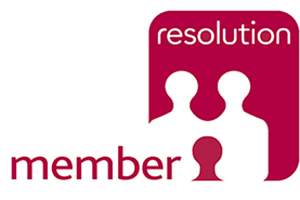Hybrid Mediation
Hybrid mediation brings together the best of both the family and civil mediation models meaning that mediation can be offered in a different way to traditional family mediation. Hybrid mediators have undertaken specialist training to help them utilise these techniques to enable mediation to be more flexible.

What are the differences with hybrid mediation?
Hybrid mediation can offer one or more of the following:
- Hybrid mediation enables the mediator to hold “confidences” for short periods of time. This can aid the negotiation process and time when certain information is released.
- Other professionals such as solicitors or financial advisers regularly attend hybrid mediations to support the participants. This can be particularly useful in complex matters.
- Hybrid mediation can be particularly effective when there are certain safeguarding issues and where one person does not feel comfortable being in the same room or same Zoom screen as the other.
Advantages of hybrid mediation
Hybrid mediation may make the process of negotiation easier as each person can spend individual time with the mediator discussing their settlement position without all that information being shared immediately. It can help the mediator move the discussions forward and assist in the parties reaching a resolution.
By having the option of involving solicitors it can ensure parties are supported and receiving legal advice during the mediation meetings rather than the advice being provided between mediations. Having solicitors attend the mediation can also help parties confidence with discussion options. It enables the other professionals to use their skills and knowledge to support the process and therefore more likely to achieve fair and workable settlements.
The process
As with traditional mediation, both parties need to attend a Miams for an assessment as to the suitability of mediation to take place. At the Miams all process options will be considered to ensure the couple choose the right option for them. At this stage they may choose to use hybrid mediation and wish to have solicitors attend with them. The solicitors will then need to have a conversation with the mediator to ensure their roles within the mediation process are clear and agreed. In this conversation time may be taken to explore the issues which need to be resolved.
All parties and professionals will need to sign the Agreement to Mediate.
The first joint meeting will be arranged. This may be with just the parties or it may include their solicitors. The process will then evolve and further meetings arranged as suitable for that couple. If professionals other than solicitors are to be involved in the process we will agree when and how they are involved.
Please contact us if you have any questions about hybrid mediation.
Get in touch
If you'd like to learn more about this, please fill in the enquiry form below:



